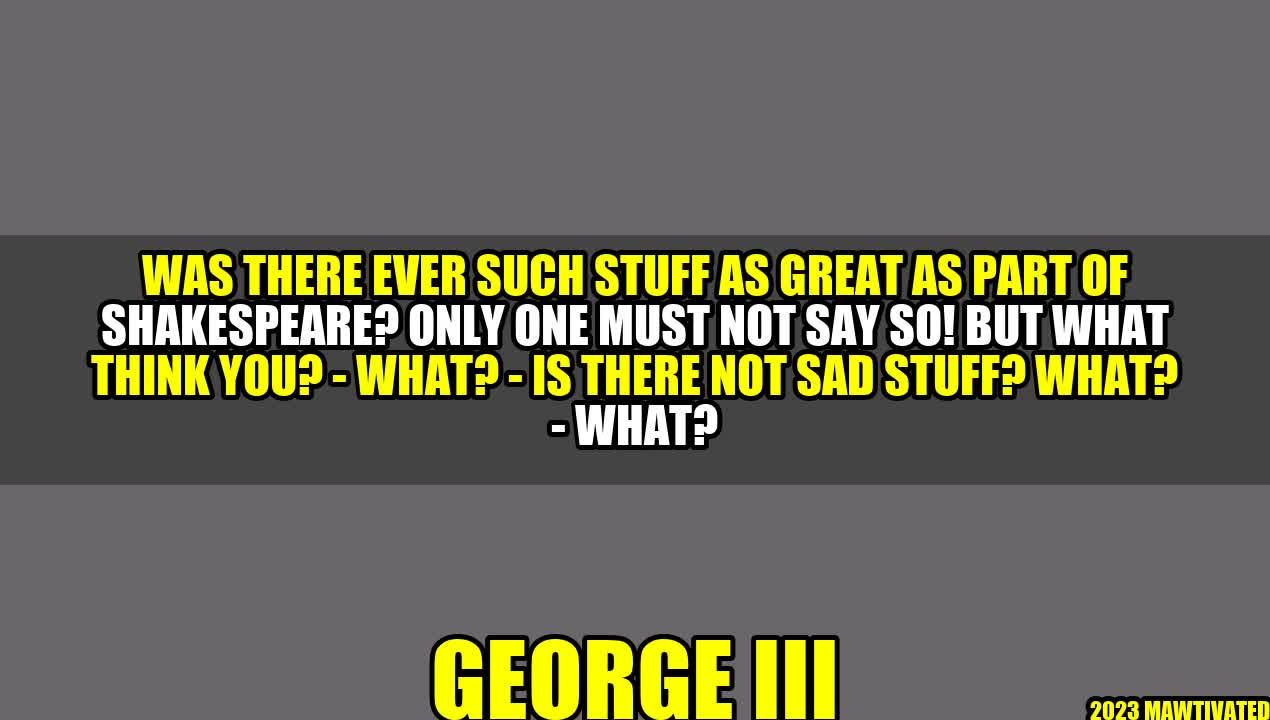The Power of Shakespeare: Hero or Villain?

Once upon a time, a young and curious George III was introduced to Shakespeare’s plays. He immersed himself in them, reading and re-reading each one until he knew them by heart. And yet, he couldn’t quite describe why he loved them so much.
Years later, George III would come to appreciate the true genius of Shakespeare’s works. But the question remains: was there ever such stuff as great as part of Shakespeare?
The Case for Shakespeare’s Greatness
It’s hard to deny that Shakespeare was a master of language and storytelling. His plays, sonnets, and other works continue to captivate and inspire readers and audiences hundreds of years after they were written.
- He created timeless characters like Romeo and Juliet, Macbeth, and Hamlet that have transcended time and culture
- He used complex themes and imagery to explore human nature
- His language is so eloquent and poetic that it has become a part of everyday speech
It’s no wonder that Shakespeare is often hailed as the greatest writer in the English language and one of the greatest writers of all time.
The Case Against Shakespeare’s Greatness
Despite all that, there are those who argue that Shakespeare is overrated.
“Is there not sad stuff? What? – What?”
Some critics point to the fact that Shakespeare’s works were often written for the masses and designed to appeal to popular tastes. They argue that this makes his works less meaningful or important than those of other writers who wrote for more elite audiences.
Others point to the fact that some of Shakespeare’s works contain themes and ideas that are now considered outdated or even offensive. For example, “The Taming of the Shrew” is criticized for promoting misogynistic ideas, while “Othello” is accused of perpetuating racist stereotypes.
So Which Is It?
The truth is, like many things in life, it’s complicated. Shakespeare’s works are undeniably powerful and influential, but they are not without flaws. It’s up to each individual to decide for themselves whether they think Shakespeare’s greatness outweighs his shortcomings.
Some Examples
To illustrate this point, let’s look at a few specific examples:
- “Romeo and Juliet” is a classic love story that has been adapted countless times and continues to resonate with audiences around the world. However, some critics argue that it promotes an unrealistic and unhealthy view of love, glorifying suicide and making light of issues like teenage pregnancy.
- “Hamlet” is widely regarded as one of Shakespeare’s greatest works, featuring complex themes like madness, revenge, and the meaning of life. However, some readers find it difficult to relate to the character of Hamlet, who can come across as selfish and whiny.
- “The Merchant of Venice” is a controversial play that deals with issues like anti-Semitism and revenge. While some readers appreciate the nuanced portrayal of characters like Shylock, who is often portrayed as a villain, others find the play to be insensitive and offensive.
Conclusion
In the end, the question of Shakespeare’s greatness is largely a matter of personal opinion. However, there are a few key takeaways:
- Shakespeare’s impact on literature and culture cannot be denied.
- His works are complex and powerful, but also flawed and sometimes problematic.
- Ultimately, it’s up to each individual to decide whether they think Shakespeare is a hero or a villain.
Hashtags
#Shakespeare #Greatness #Literature #Culture #Controversy #Opinions
SEO Keywords
Shakespeare, Greatness, Literature, Controversy, Opinions
Article Category
Literature

Curated by Team Akash.Mittal.Blog
Share on Twitter
Share on LinkedIn